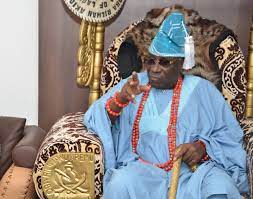Considering the observed momentary ups and downs of naira value at the parallel and interbank markets any time the Central Bank of Nigeria (CBN) injects dollars, finance analysts have continued to raise concerns, saying the idea has shown inability to be sustainable in the long term.
As at the last count by Business Hilights, late Tuesday, the apex bank released about $100m to the market, thus bringing total injection in the last two weeks to $1.14bn, still yet, the target of stability has remained rather far from reality.
In the submissions of a development Economist, Dr Anthony Aziegbemi, all the CBN had been doing to the money market can best be described as artificial solution that cannot pass the test of time.
This means that the prevailing policy where dollar is injected randomly cannot do the magic of strengthening the value of Naira.
Stressing the negative imports of the policy in Abuja during a round-table on the ‘Way out of Recession’, put together by Value Fronteira Limited, he said that the right way to strengthen the Naira was to invest in critical infrastructure and ensure that the manufacturing and agriculture sector got the necessary support to grow.
Though CBN claimed that the latest release was to meet legitimate demand of foreign currencies for travels, school fees and medicals, observers say the dollar always has a way of finding its way to the black market, thus allowing currency speculators to continue to do the damage.
He said the CBN may have been going round a dangerous circle without knowing it, stressing that at a point the bank will be shocked to inject more, dollar appreciation will finally kill the naira and make naira look like Zimbabwean dollar where everybody will be carrying naira on wheelbarrow.
According to him, “Right now CBN is pumping so much Forex because it has the money. But once the money dries up, we are back to square one.
“Economics is a social science, thus contains laws that govern how economies should be run.
“If you don’t follow these laws and you do it artificially, like banning of the 41 items from getting foreign exchange, the economy won’t work as expected.
“You need to attack the foundation of the economy. You need to get the manufacturing industry up and moving. That is the only way we will have sustainable progress,’’ he said.
Looking at the best option to exit recession, Aziegbemi called for the downward review of the current monetary policy rate, saying countries that successfully came out of recession had lowered their monetary policy rates during such trying times to encourage spending.
He gave a clear example with China, Ethiopia, India, Malaysia, Poland, Mexico and Turkey that reduced lending rate, increased spending and used fiscal policy to stimulate demand in the face of collapsing global demand.
In his further submission, the Economist called on the Monetary Policy Committee needs to cut down the monetary policy rate to at least 8 per cent, saying “The cause of inflation is our over dependence on foreign products and not excess liquidity. So raising the lending rate has made less money available in the system and more difficult to drag the economy out of recession”.
However, a section of the public believe that the sustained inflow of dollars through the inter-bank market over time will meet industrial productivity rise and if the growing peace in the Niger Delta stays, very soon, these three positive lines of actions will effectively exit Nigeria from recession. The factors will also be further complemented by the surging agricultural productivity especially in rice production which will effectively cut of multi-billion dollar capital flights in rice exportation.









